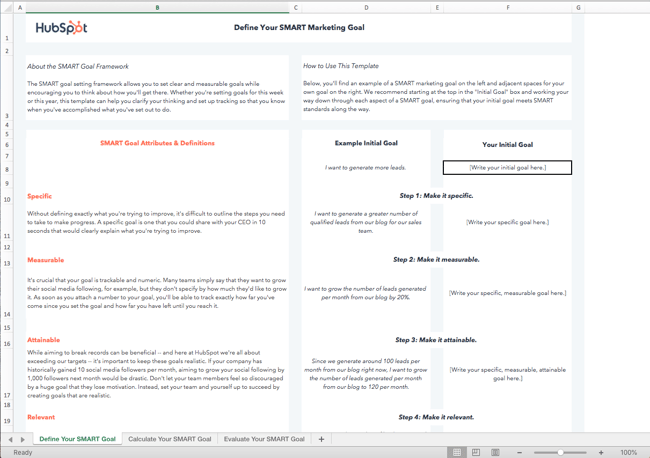15 Best Examples of Professional Goals [+Tips to Achieve Them]

“So, where do you see yourself five years from now?” Oof, that can be a tricky interview question, especially if you’re unsure of your professional goals.
When I graduated from college and started interviewing in my chosen field, I felt like I needed to plan my entire professional life, complete with one concrete end goal.
To be honest, it was overwhelming. I desperately needed actionable advice to plan steps to reach my professional goals.
In this post, we’ll define professional goals, provide examples, and give you tips so you can plan, meet, and exceed the goals you set for yourself.
Tips for Achieving Professional Goals
Work Towards Your Professional Goals
What Are Professional Goals?
Professional goals are achievements or milestones you hope to achieve in your career. These include personal and professional development, skill development, salary increases, career advancement, and switches.
Professional goals are often personal, but they don’t have to be. You can set professional goals for yourself and your team to help improve your organization and elevate it to the next level.
What makes a good professional goal?
What separates a professional goal from a wish is that professional goals are attainable and achievable when designed with the appropriate framework.
It’s important to point out that you might have one overarching professional goal, like “become professionally bilingual.”
However, under your overarching goal, you might have smaller, more manageable goals with a specific, actionable framework attached to them to help you reach your biggest goal.
The SMART goal framework is the perfect framework to apply to reach your big and small goals. The letters of SMART stand for:
- Specific
- Measurable
- Attainable
- Relevant
- Time-Bound
Let’s examine each letter so that you understand how to structure your goals for maximum achievement.
Specific
When writing your own professional goals, you need to be specific. For example, if you want to become bilingual to position yourself ahead of your competition in the job market, you need to be specific about the language you’ll need to learn.
There are over 2,000 languages worldwide, but only one or two will be relevant to your job market. Take some time to research your field before choosing your second language.
In other words, you need to ensure your smaller goal is specific enough to help you reach your overarching goal.
Measurable
If your goal is measurable, you can easily track your progress. You can make your goals measurable by including a number. For example, if your goal is to learn Spanish, a more measurable goal would be, “Learn five new Spanish vocabulary words.”
The difference between “Learn five new Spanish vocabulary words” and “Learn Spanish” is that you now have something to work on. Making your goals measurable can help break down the task, too.
Attainable
If your goals aren’t attainable, there’s a good chance they’ll fall into the “wishes” category. By adjusting your goals …read more
Source:: HubSpot Blog









